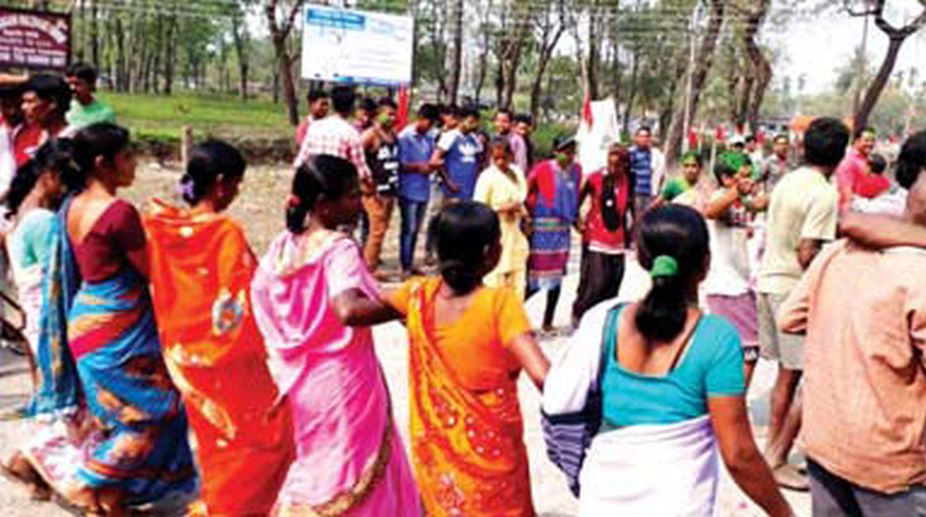At many places in tea plantations in the Dooars region, it was a case of the ‘lotus blooming’ to beat the twin flowers, and this despite the state government’s efforts to hike the remuneration for tea workers.
BJP leaders claimed that had the ruling party leaders allowed them to file nomination papers for all the three-tier rural elections, and had the State Election Commission (SEC) conducted free and fair polls, their candidates would have won more seats.
Advertisement
Commenting on the ‘unexpected’ results, as compared to the panchayat poll results in north and south Bengal, the Trinamul Congress said that several workers under the Left Front had supported the BJP.
Sources said that the most significant development was the BJP candidates winning many seats in some tea belt, where the Trinamul-backed trade union leaders had been continuously fighting for them throughout the year.
Citing an example, they said: “In the Ambari tea plantation in Banarhat, the Trinamul- backed union controls a majority of the workers, who are mostly Nepali-speaking. As the main operating union, Trinamul Congress leaders fought for them throughout the year. But the BJP bagged all the three Gram Panchayat (GP) seats there.”
A political observer said that last year’s Gorkhaland agitation and the ensuing developments in the Hills was one factor that turned the tides in favour of the BJP in the Dooars. In what was seen as a move to appease tea workers, the state government had hiked the wages, as an interim measure, by Rs 17.50, without a tripartite agreement.
The wages then went up from the earlier Rs 137.50 to Rs 150 a day. Also, following demands from trade unions, though a majority of the unions demanded implementation of the Minimum Wages Act, the state labour department has asked planters to make a payment of Rs 9 a day as value of the ration component.
In Madarihat, where a BJP candidate was earlier elected the MLA, the Trinamul recovered lost ground after reopening some closed tea plantations ahead of the rural polls. Ruling party leaders had expected Trinamul candidates to perform well in those tea garden areas.
However, the BJP was able to win control over one such garden, Kohinoor. Sources also said that the BJP would form the Banarhat- II GP board, a tea belt comprising several tea plantations. Interestingly, in the 29-member Banarhat-I GP board, the BJP bagged 11 seats, while the Trinamul won 15.
However, the BJP plans to stake claim to the board with support from other elected members. Results in Binnaguri left Trinamul leaders upset as it was a neck and neck fight for the ruling party and the BJP.
In Alipurduar district, the BJP has captured eight GPs, half of them in areas that cover tea gardens like Dalsingpara, Turturi Khanda, Volka Barovisa- I and Kohinoor. Moreover, the BJP has also bagged many seats in some areas, where there was a hung verdict.
“Everything was going on in the right direction, until Left leaders hatched a conspiracy, and workers belonging to the Left-backed trade unions supported the BJP,” Trinamul Congress leader Sourav Chakraborty, who is also the chairman of the Siliguri Jalpaiguri Development Authority (SJDA), said.
On the other hand, Madarihat MLA and BJP leader Manoj Tigga, said that party candidates performed well in Banarhat, Nagrakata and in some areas, including Alipurduar, especially in the tea belt.
“But we could not perform well in some areas where we thought we had a strong base,” he said. “We were not able to file nomination papers in Malbazaar, another tea belt. We lost many more seats due to threats, vote rigging and manipulation in counting. Our counting agents were driven out of counting halls. We must go to the court, demanding recount and re-election,” he added.









